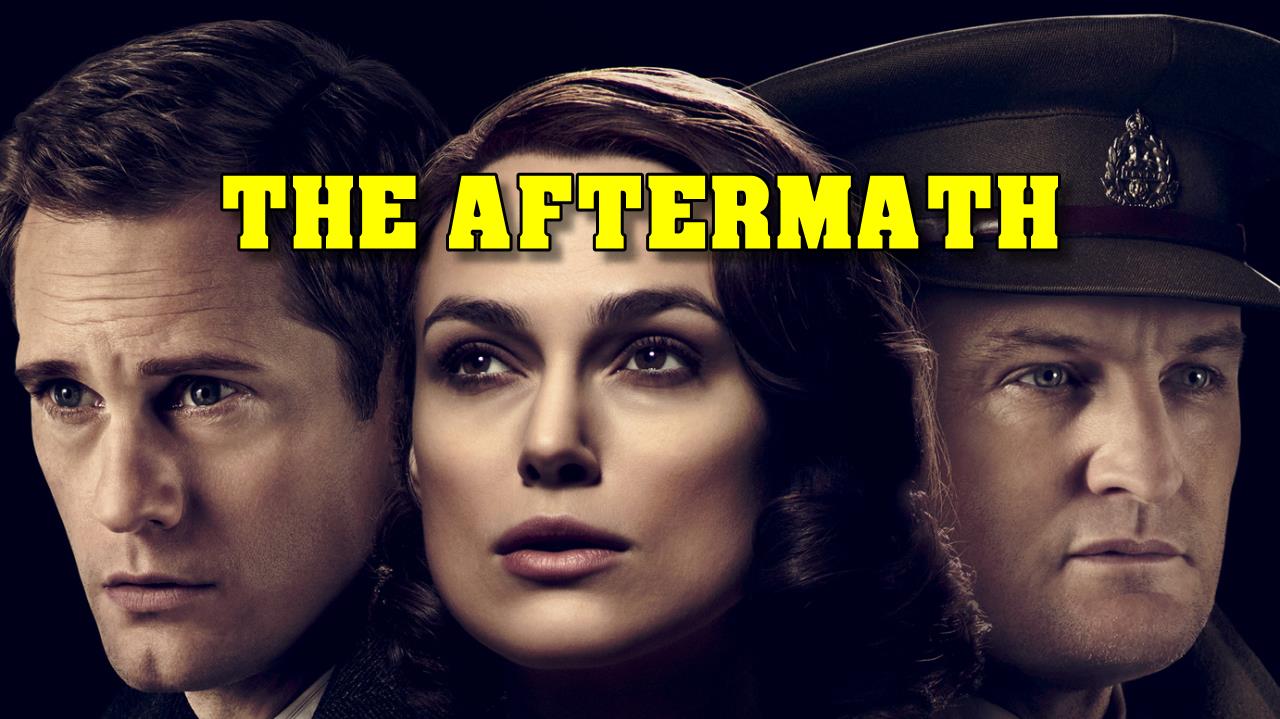
_(En,Fr,Es)-1.jpg)

He’s forthcoming and endorses the importance of whistleblowers in virtual interviews with Fogel that are both heartening and, concerning his safety, worrying. Yuri Ganus, Rodchenkov’s successor at the Anti-Doping Center, is a ray of reason and hope. Russia doesn’t have a monopoly on nationalist fervor and propaganda, but its particular brand of these, combined with shockingly old-school spycraft, sets it apart. In Rodchenkov’s astute observation, “Whistleblowers are the most hated from both sides.” (Ask Julian Assange.) With the guidance of attorney Bo Cooper, Rodchenkov seeks asylum, and his case drags on for several years at one point, a trade for Edward Snowden is considered.

It would be a simplistic reading of the film to say that it’s proof of a unique brand of evil in the world.
#THE AFTERMATH TV#
A Russian TV commentator decries Rodchenkov’s “malicious intent toward our athletes.” To that point, the doc includes footage of Putin disparaging him as a “nutjob” and calling treason the worst possible crime. Swantko conducts a sit-down interview with him, in which he speaks of a persistent Soviet mentality in post-glasnost Russia. “Why did you even venture into this hell?”Īs to who he is and how he got to this point, Fogel uses brisk animation (by Gary Breslin’s Office of Development & Design) to illustrate Rodchenkov’s days as a young athlete, when his own doping began - against his coach’s policy, and with his mother’s help. Somewhere along the way, not explored in the film, he writes a book, 2020’s The Rodchenkov Affair: How I Brought Down Russia’s Secret Doping Empire. In phone calls with his wife, Veronika, who’s still in Russia, his attempts to put a hopeful spin on their predicament don’t wash. Moving from place to place, often with little notice, the whistleblower monitors the official reaction back home, dyes his hair (with Swantko’s assistance) and soothes his nerves with whiskey. They manage a couple of in-person meetings too, the first of these memorialized with an almost romantic mini-montage at one of the secret stops on Rodchenkov’s underground travels. The affection between Rodchenkov and Fogel is especially strong, evidenced in the Zoom call that marks their first contact in two and a half years. (During his years on the run, headlines announce the poisoning of Russian double agent Sergei Skripal and his daughter, Yulia Skripal, in England, and that of opposition leader Alexei Navalny.) These include a legal team, led by Jim Walden, who have reason to believe that there are Russian operatives looking for him in the U.S. His silences can be loaded with foreboding, and his effusiveness is childlike, especially when he’s expressing his feelings for the people who are working to protect him. Rodchenkov is a compelling protagonist with a big personality - brainy, gregarious, funny. Strategies were science-based and borderline-ludicrous, among them a secret laboratory on a luxury ship, a mandate for athletes to pee in their pants, and a “Duchess cocktail” that used scotch or vodka to mask the pharmaceuticals. As the head of Russia’s Anti-Doping Center, his chief purpose was devising ways for the country’s Olympians to use performance-enhancing drugs and not get caught - a more accurate name for the agency would have been the Anti-Doping-Evidence Center. Orwell is, understandably, near and dear to Rodchenkov. With thriller lighting in law-office conference rooms and kinetic camerawork in temporary homes somewhere in the United States, the story unfolds with a fittingly unsettling rhythm (the editing is by Wyatt Rogowski and Lauren Brinkman), while Peters’ score shifts between percussive beats and dark, nerve-jangling chords. For those who didn’t see the earlier doc, the dexterous opening-credits recap tells you what you need to know, with a few helpful glances back during the film itself as well. The Aftermath reteams Fogel with Swantko, writer-producer Mark Monroe (who has worked on some of the most high-profile nonfiction features in recent years, among them The Cove, Hooligan Sparrow and Lucy and Desi) and composer Adam Peters.


 0 kommentar(er)
0 kommentar(er)
